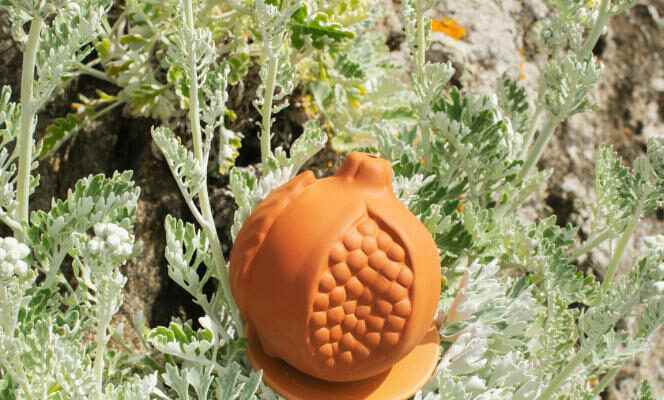Originally from Persia, the pomegranate tree spread rapidly in the Mediterranean region. The plant grows easily on the most arid soils: its round, cardboard-skinned fruit contains hundreds of scarlet, juicy seeds with multiple health benefits. Symbol of abundance, fertility and fortune, it is often quoted in ancient works and represented in Eastern and Christian religious iconography. In 1221, Dominican friars founded a phytotherapy pharmacy in the convent of Santa Maria Novella, in Florence. The pomegranate tree was planted in their garden from the start, and its fruit and leaves used for preparations with toning properties. The brothers then create a fragrance, the “melograno”, a mixture of oriental and fruity notes that interpret the symbolic meaning of the tree. This terracotta pomegranate is molded by hand next to the convent, then immersed for several weeks in baths filled with the essence that bears its name. She immerses herself in it to release its fragrance little by little. It can be offered as an ecological and symbolic object at the same time.
Last name Melograno (“pomegranate” in Italian). Matter Terracotta. green profit The object diffuses its fragrance for several months, even years. Price 50 euros. eu.smnovella.com/en
To contribute

The contribution area is reserved for subscribers.
Subscribe to access this discussion space and contribute to the discussion.